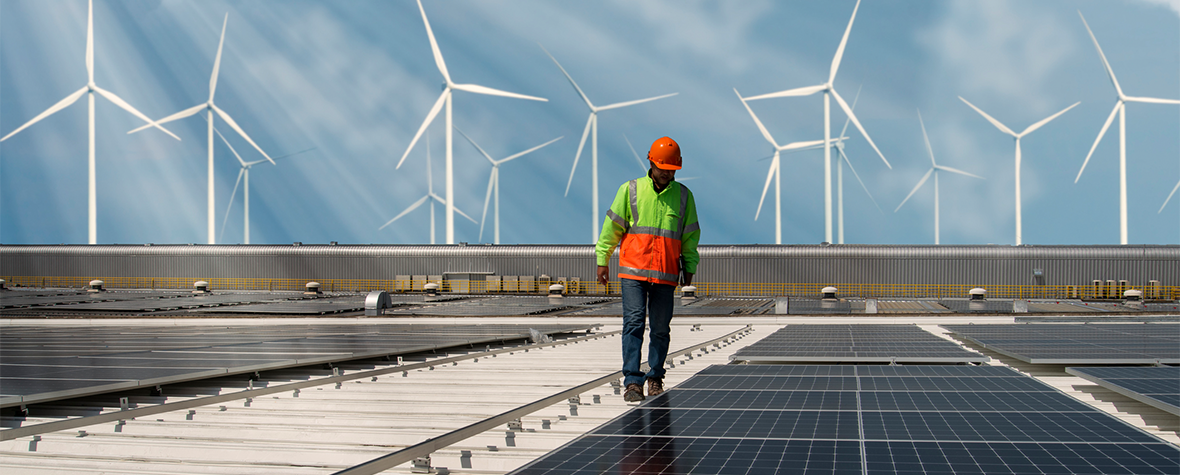Updated on 8/29/2023. Originally published on 1/20/2022.
Around 80% of crops grown worldwide require pollination. Pollinator populations have experienced global population decline over the last 10 years due to habitat loss, climate change, and exposure to chemicals such as pesticides. This decline of pollinator populations threatens global crop production and the health of entire ecosystems. Pollinator-friendly solar may be one solution.
Pollinator-Friendly Solar
Pollinator-friendly solar farms involve planting groundcover of native pollinator plant species to provide much-needed habitat and diverse food sources for critical pollinators like native bees and butterflies. Pollinator-friendly solar optimizes solar farm land use and allows us to tackle two problems at once: pollinator health and climate change.
Environmental benefits of pollinator-friendly solar include increased crop yield, groundwater recharge, carbon sequestration, and reduced soil erosion. Research published by Yale in 2019 reports that pollinator-friendly solar may also provide economic benefits to solar providers that encourage private adoption. Pollinator-friendly ground cover creates a cooler microclimate, which increases solar panel efficiency. In addition, native plants require less maintenance and can lower long-term operation costs.
MCE has taken steps to support pollinator-friendly solar. Any new solar project partners are required to plant pollinator-friendly ground cover throughout the project site and submit a pollinator scorecard every three years. Learn more about MCE’s pollinator program requirement.

How Clif Family Winery Makes Pollinator-Friendly Solar a Win-Win-Win
MCE Deep Green Champion, Clif Family Winery, launched a line of Solar Grown™ Honey which is harvested from hives placed on solar farms that power their bakeries. The solar grown honey supports a pollinator-friendly habitat, a healthier ecosystem, and 100% renewable energy.
“Clif Family’s sister company, Clif Bar & Company, built a 5-acre pollinator-friendly solar farm not only to provide energy for their bakery in Twin Falls, Idaho, but also to provide habitat for local pollinators." said Linzi Gay, General Manager at Clif Family Winery & Farm. "The hope is that these pollinator-friendly, pesticide-free habitats will create a positive difference in the long run for bees, butterflies, and other pollinators, while providing the benefits of delicious, sustainable products."

The Solar Grown distinction from Fresh Energy indicates that a product was produced on or adjacent to a solar farm that meets pollinator-friendly solar vegetation standards. This ground cover is typically a diverse mix of low-growing flowering plants that require less maintenance and contain no pesticides.
“As a wine and food company that depends on pollinators to grow the crops for the products we create, we understand the importance of protecting our pollinators. We want to bring awareness and understanding of what we can do to create healthy habitats and food sources for pollinators.”




